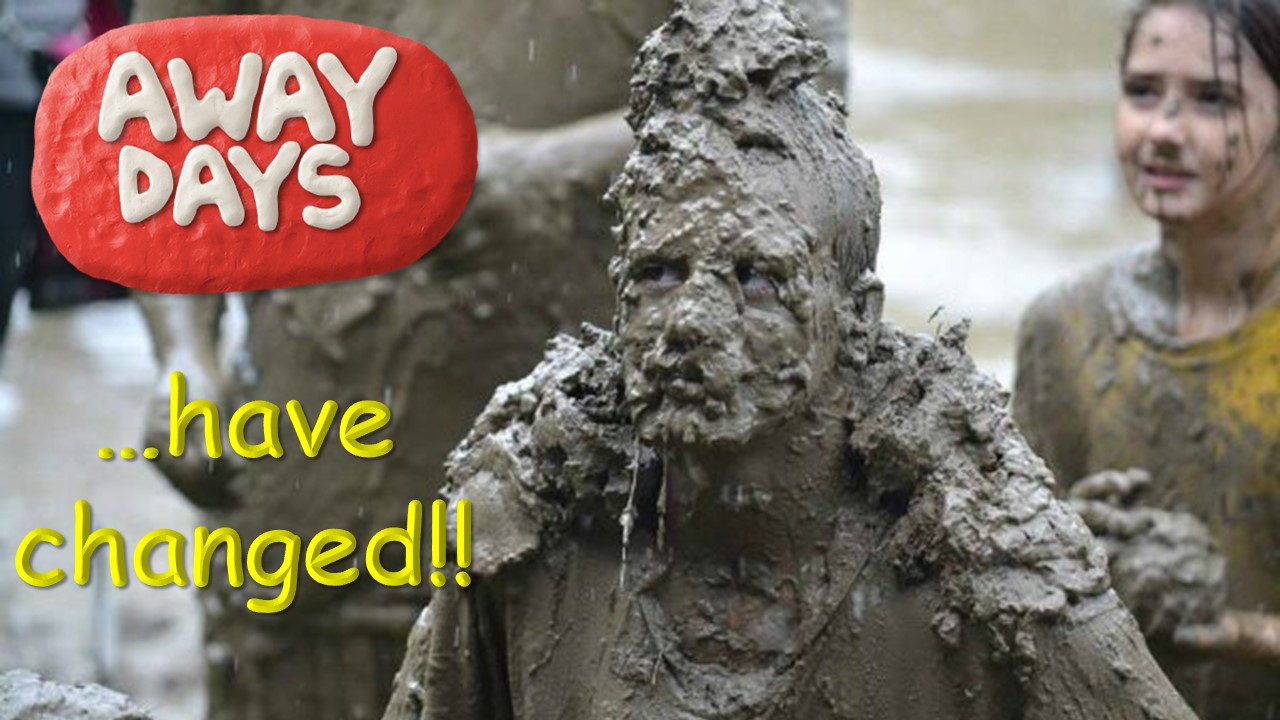Team Building Workshops
Developing Emotionally Intelligent SUPER-Teams
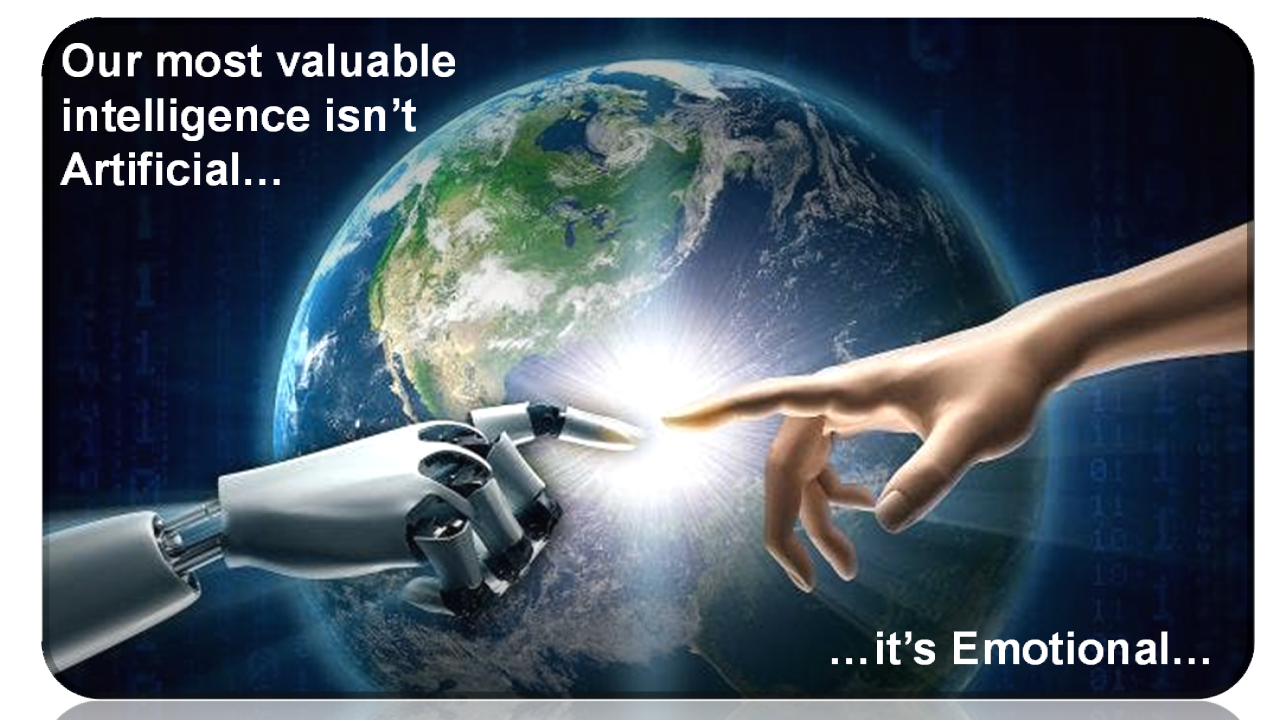
Do you want to?:
- Build your team’s impact within your organisation?
- Optimise the efficiency of your Senior Management Team?
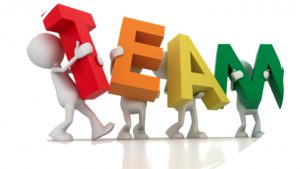
- Resolve deep routed issues between team members?
- Understand the emotional behaviours behind capability?
- Get disruptive teams to work well together?
- Have clear action plans for high performing teams?
- Create a Shared Vision and Strategic Plan for your Team based on individual skill sets?
- Measure exactly HOW Emotionally Intelligent your Team is?
Perhaps you can’t quite assess why it is that a Group of Great People are, sometimes, unable to make a Great TEAM?
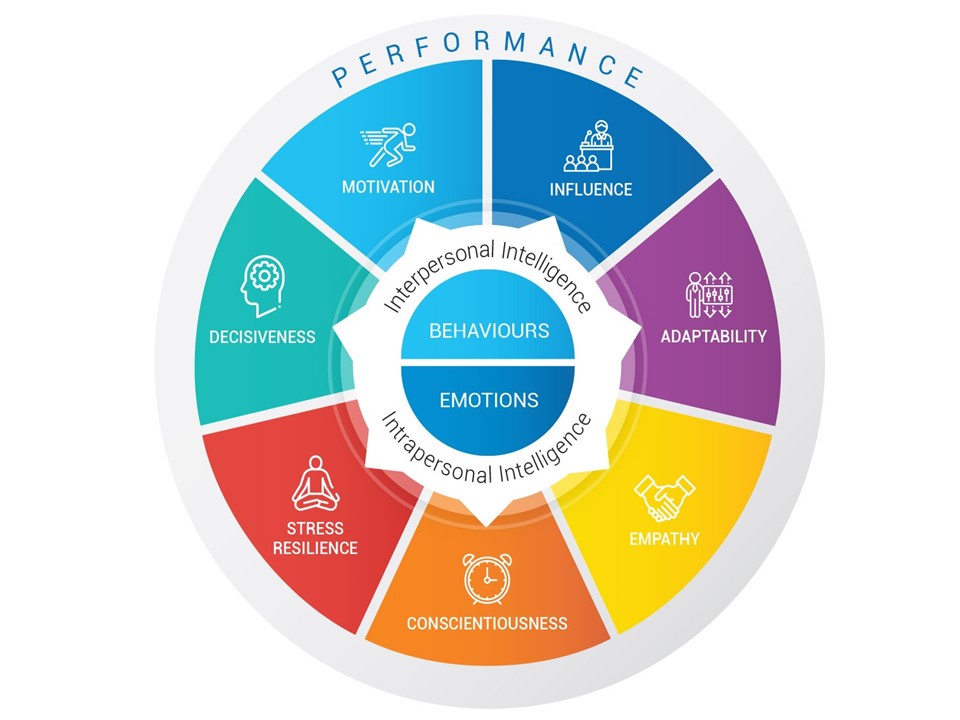
The Harvard Business Review has hailed emotional intelligence as “a  ground-breaking, paradigm-shattering idea, one of the most influential business ideas of the decade.”
ground-breaking, paradigm-shattering idea, one of the most influential business ideas of the decade.”
Emotional intelligence or EI is the ability to recognise, understand and handle your own emotions, and those of the people around you. A development of Self Awareness and Other Awareness makes E.I. the critical personal development tool for those wanting to excel at Leadership and those wanting to create or participate in High Performing Teams. How do your E.I. Behaviours and Attitudes stack up against these 8 Emotional Intelligence characteristics? People with a high degree of emotional intelligence know what they are feeling, what their emotions mean, and how these emotions can affect other people.
Perhaps you can’t quite assess why it is that a Group of Great People are, sometimes, unable to make a Great TEAM? Even Emotionally Intelligent SUPER Teams need regular “Effective Health Checks” and occasionally, re-visioning or re-alignment….why not book a “Service” for your Team to ensure that it’s operating at its optimum effectiveness and performance.
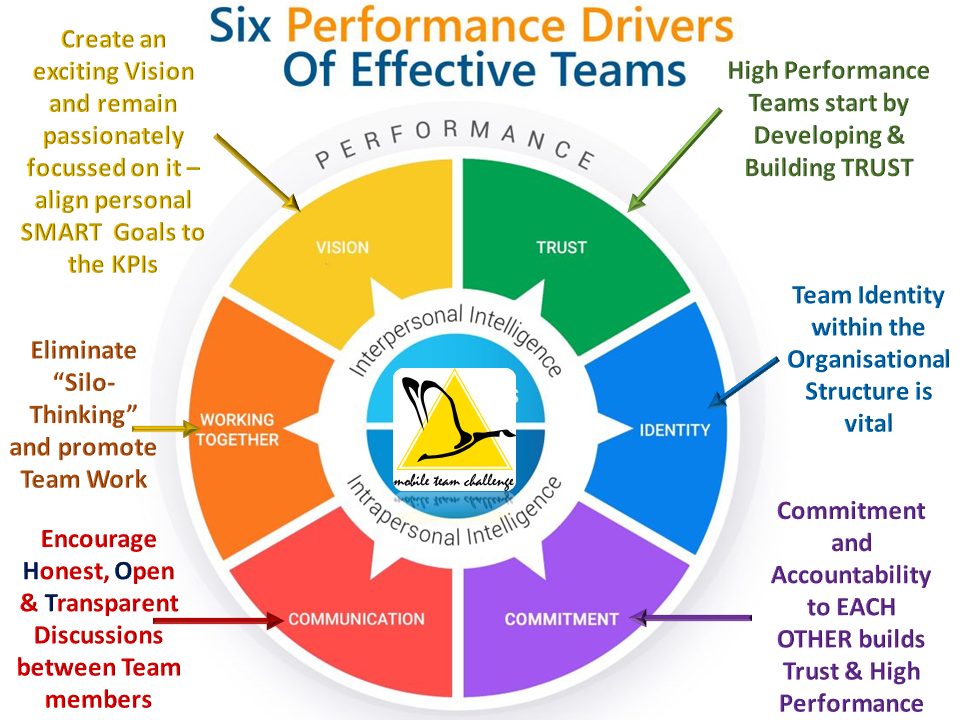
This one or two-day CPD Accredited Workshop from MTC utilises approved British Psychological Society’s Emotional Intelligence Profiling for each Team Member and will create a detailed assessment of the TEAM’s Emotional Intelligence.
In the current climate the need for imagination and innovation is greater 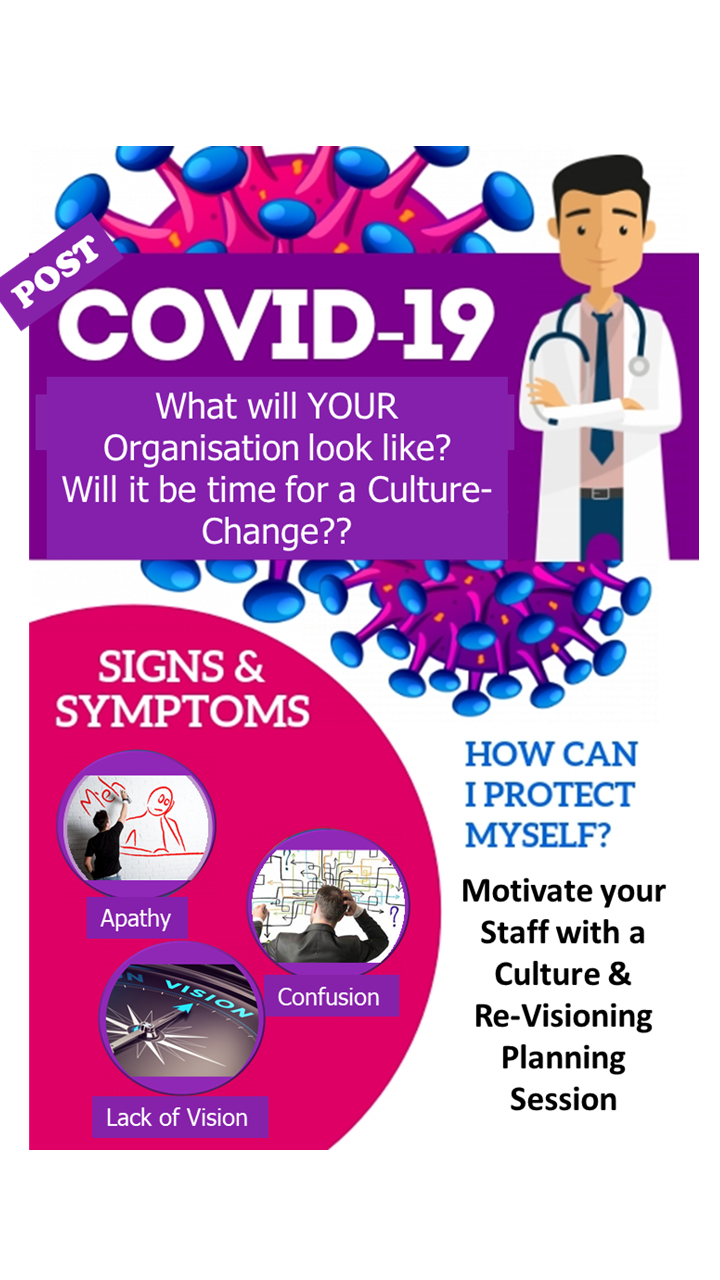 than ever.
than ever.
Small and large businesses need to adapt and shape their plans to survive and flourish in the pandemic and post-pandemic world.
But how do leaders gain trust to create the change businesses need to survive?
How do they create trust in virtual or separated teams who they need to adapt to change and innovation?
This is especially challenging in a changing world where difficult decisions that leaders need to take often result in a breakdown in trust.
And we all know that repairing trust is far, far harder than building it from the ground up could ever have been.
Building Trust in Teams
Today’s new world leaders need to be able to develop virtual team leadership that enables then to build high-trust, high-performance teams.
- The Emotional Intelligence model for effective teams provides a straightforward framework for teams to understand how their Emotional Intelligence impacts on the pyramid of core drivers, that underpin team’s performance.
- Its focus is helping teams deploy their Emotional Intelligence to build these core team drivers
- It assists the creation of shared vision and goals
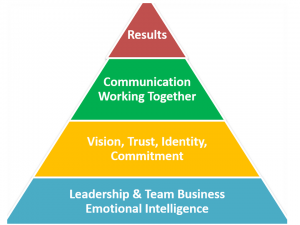
- It builds healthy trust levels
- It encourages strong commitment to team goals and aligns personal targets with the organisations’ strategic direction
- It gives High Team Identity (loyalty & accountability)
- It develops superior communication & feedback
- It gives the Team an enhanced capability to work together
By using this straightforward approach virtual or remote teams are better able to move forward, grow and overcome the significant challenges they are facing.
Click here to see a sample of an Emotionally Intelligent E-Team Profile Report
Click Here to a video to see the processes of the EBWt Team Effectiveness Interventions
Click Here for an overview of our Award-Winning Away Day Format
This CPD Accredited Workshop is available in 1-day (£895.00 + VAT + E.I. Profiles at £45.00 each) or a 2-Day Format £1,495 + VAT + £45.00 each per Individual Personal Emotional Intelligence Profile for up to 12 delegates, in-house.
Both formats include MTC’s Award Winning Experiential Learning Activities.
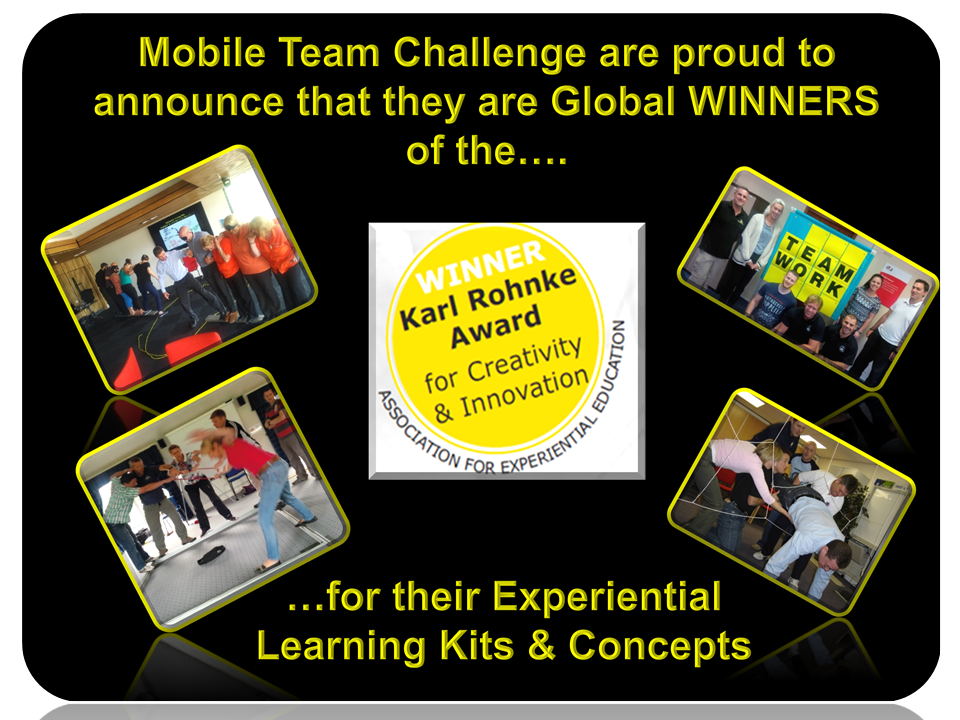
Creating Winning Behaviours & Attitudes: High Performance Team Building
|
|
How to Overcome The 5 Dysfunctions of a Team – Patrick Lencioni
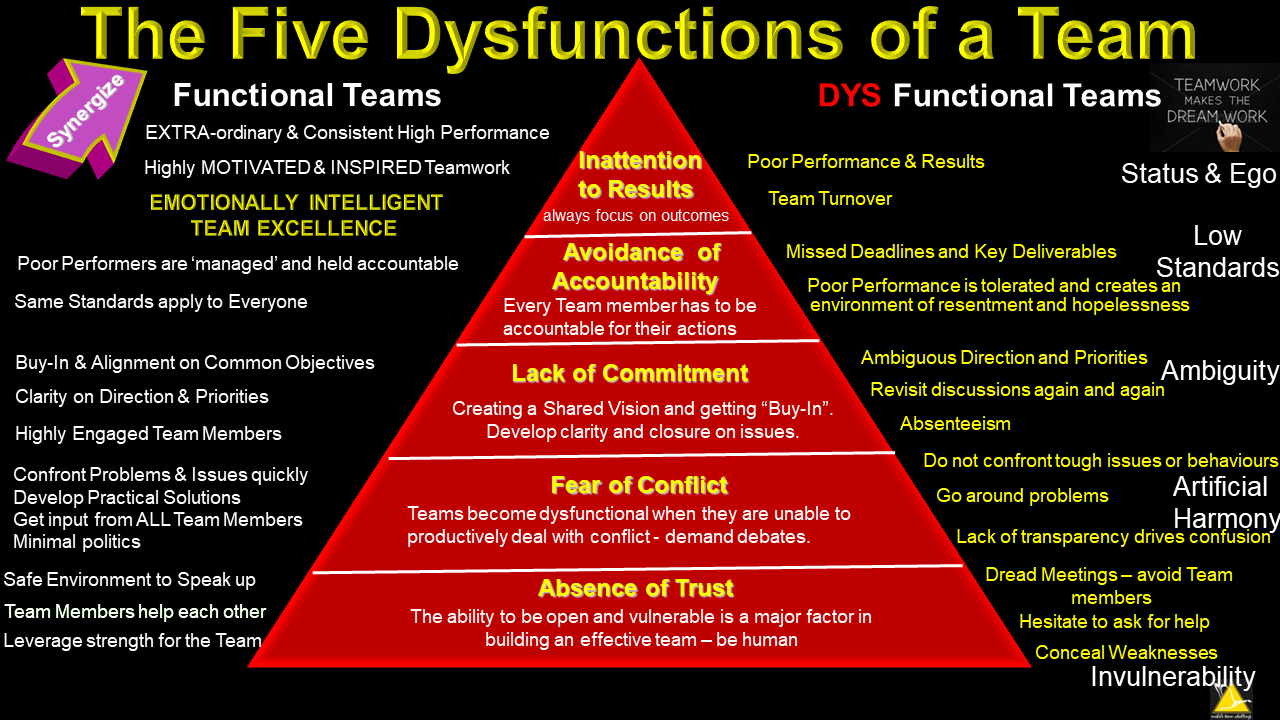
Whether the team you are looking to develop is;
- a Senior Management Team
- or if you are looking to optimise the performance of an internal team or department
- or if you are looking to resolve deep-routed issues between team members
- or if you are wanting to understand emotional intelligence behaviours of team members
- or if you are wanting the team to get a better understanding of each other’s personality types
- or if you are looking for a fun process to create a Shared Vision for the Team
- or if you are looking to create the 5 attitudes and functions required to create highly effective teams….
Then Mobile Team Challenge has exactly the right intervention for you.
Our workshops can either be face to face including experiential learning activities or delivered online via Zoom or Teams.
Click Here to see a sample of an Ultimate Away Day
“Coming together is a beginning, staying together is progress, and working together is success.” Henry Ford
NOW with Myers Briggs or Emotional Intelligence Profiles at £45.00 + VAT per delegate
Cost: per Group of 15 – £1,495 for a 2 day Workshop
A variety of bespoke Workshops that demonstrate the way to unleash collective potential power in Teams in order to maximise their effectiveness and to give them a competitive edge. The sessions explore Team dynamics, Team psychology, Shared Visions/Goals and Belbin models whilst also building trust, confidence, motivation and morale and utilises innovative Coaching techniques in the pursuit of Team Excellence and effective Teamwork.
This course combines adventure experiential learning and self awareness techniques – either at our Adventure Centre or on-site. The course refers to Patrick Lencioni’s “The 5 Dysfunctions of a Team” and also Dr Stephen Covey’s “The 7 Habits of Highly Effective People”.
SO…. you think you know your Team? …click here to see…..
Understanding your Team Members
The owner of our company was European Vice President of the Electronics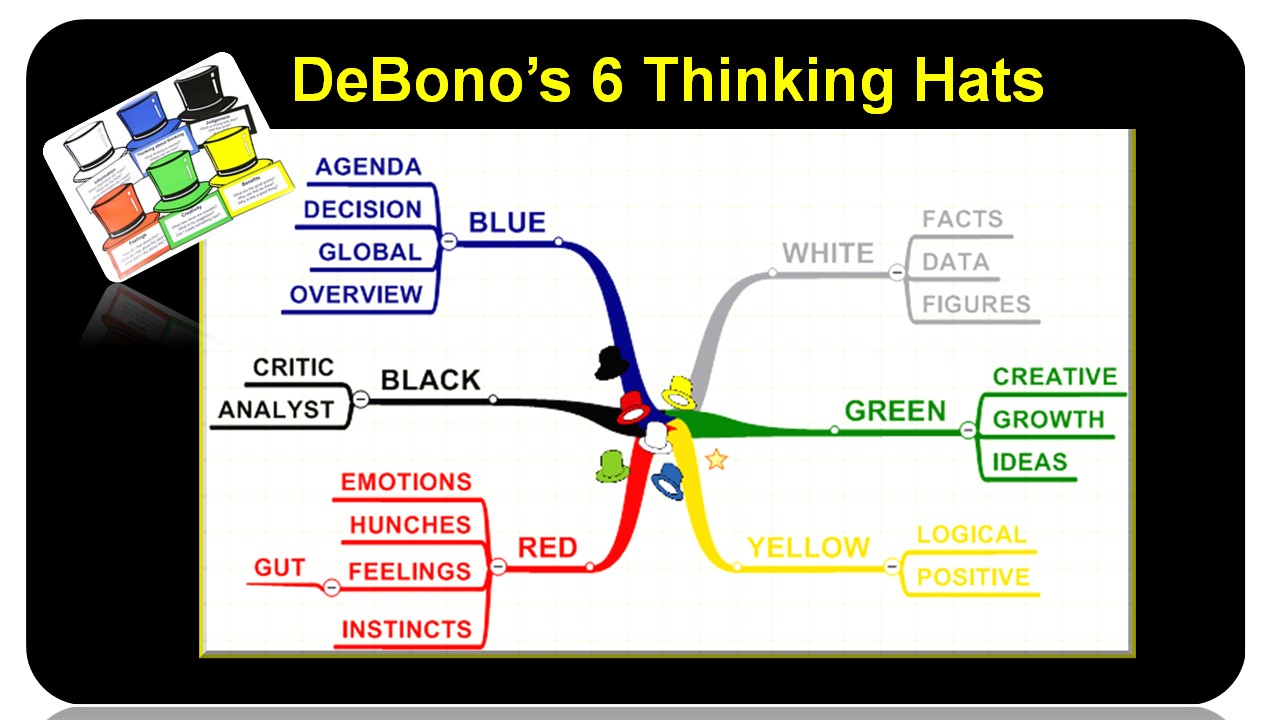 Division of 3M for 25 years and it was during this time that 3M were opening a new showroom to showcase their 42,000 products and Edward DeBono graciously agreed to come and open their showroom. hence, our insight into DeBono’s concepts and revelations were as a result of our CEO of working directly with him. Whilst DeBono’s 6 Thinking Hats were created to increase the efficiency of our various thinking styles and to help develop our “other-awareness” as we see the problem from 6 different perspectives, it actually evolved into being a tool to help us understand different “types” of personality. It serves as an excellent introduction to self and other awareness as a way of understanding our customers, colleagues and team members.
Division of 3M for 25 years and it was during this time that 3M were opening a new showroom to showcase their 42,000 products and Edward DeBono graciously agreed to come and open their showroom. hence, our insight into DeBono’s concepts and revelations were as a result of our CEO of working directly with him. Whilst DeBono’s 6 Thinking Hats were created to increase the efficiency of our various thinking styles and to help develop our “other-awareness” as we see the problem from 6 different perspectives, it actually evolved into being a tool to help us understand different “types” of personality. It serves as an excellent introduction to self and other awareness as a way of understanding our customers, colleagues and team members.
Overcoming The 5 Dysfunctions of a Team: Patrick Lencioni
Patrick Lencioni has been described by the One-Minute Manager’s Ken Blanchard as “fast defining the next generation of business thinkers.”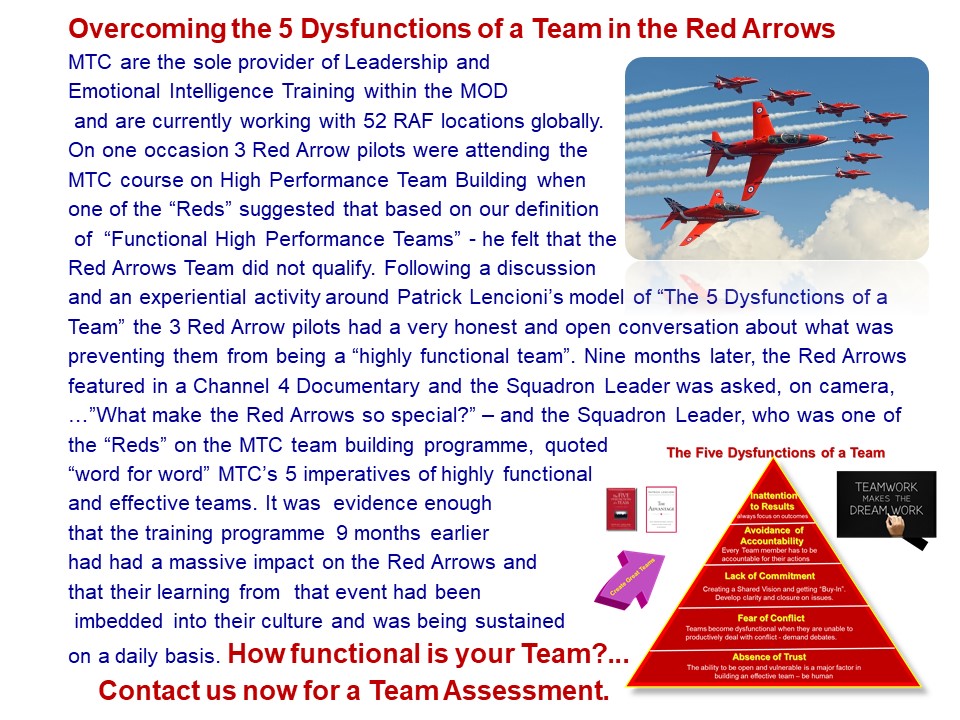
His passion for organisations and teams is reflected in his writing, speaking and consulting. He is the author of five business books, including The Five Dysfunctions of a Team, which continues to be highlighted on The New York Times, Business Week, Wall Street Journal and USA Today best-seller lists.
Pat’s work has also been featured in numerous publications such as Fast Company, INC. Magazine, USA Today, Entrepreneur, Drucker Foundation’s Leader to Leader and The Harvard Business Review and this module will encourage delegates to carefully consider Lencioni’s 5 dysfunctions of Teams.
MTC have been the preferred supplier to the MOD for Leadership, Team Working, Emotional Intelligence and Conflict Resolution Development since 2004 and have trained over 5,000 Military personnel across 60 RAF, Army, Navy and Tri-Services locations across the world. Even the Red Arrows have participated in the MTC Team Working workshops utilising The 5 Dysfunctions of a Team concepts.
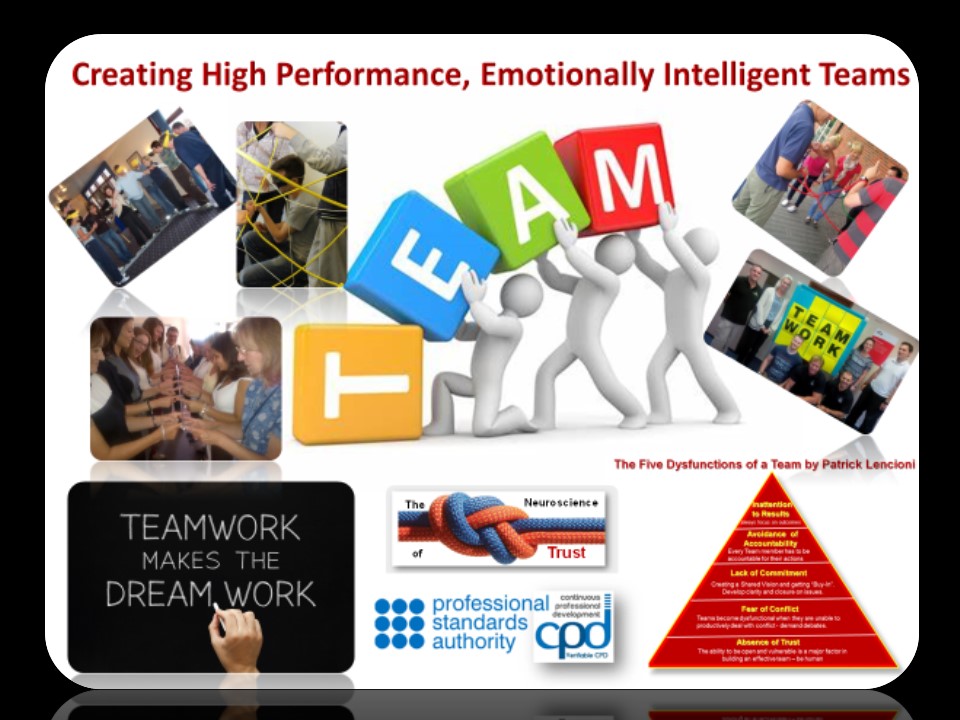
In brief summary, the 5 principles are as follows:
1. Absence of Trust
The first dysfunction is the absence of trust amongst team members. The type of trust the author is talking about here is the ability of group members to show their weaknesses, to be vulnerable and open with one another. Trust is never generated in teams when the team members are not prepared to be vulnerable. Instead they feel the need to be right, to be strong and competent, so much that they are unable to be vulnerable and open with one another. Trust requires that team members have confidence in each other intentions, that they are good and therefore have no reason to be protective and careful in the team. The when I ‘m vulnerable it will not be exploited and used against me by the team. The lack of trust amongst teams is a huge waste of time and energy as team members invest their time and energy in defensive behaviours, reluctant to ask for help and to assist others.
“…teamwork begins by building trust. And the only way to do that is to overcome our need for invulnerability.”
The primary role of the leader is to lead my example, be the first one to be vulnerable, and create an environment where it’s safe to be vulnerable. Building trust makes conflict possible!
2. Fear of Conflict
Trust is the foundation of great teams and its trust that makes team conflict possible. Teams become dysfunctional when they are unable to productively deal with conflict. All meaningful relationships require productive conflict for them to grow. Healthy conflict occurs when people talk about the issue at hand avoiding personal attacks, looking for the best solution for the team. Teams tend to avoid conflict often replacing it with an artificial harmony.
“Harmony itself is good, I suppose, if it comes as a result of working through issues constantly and cycling through conflict. But if it comes only as a result of people holding back their opinions and honest concerns, then it’s a bad thing.”
What Leaders and their teams must do is learn to identify artificial harmony when they see it, and incite productive conflict and resolution in its place. As Bruce Tuckman identified, every Team goes through a “STORMING” stage in its dynamic evolution and this frequently manifests itself as “conflict”.
3. Lack of Commitment
When teams engage in productive conflict they can confidently commit and buy-in to decisions. Commitment is a function of clarity and buy-in. Productive teams make clear decisions and are confident that they have the support from every team member. A lack of commitment usually arises from not hearing all the teams concerns before making a decision. There can be no commitment without debate. People will not buy into something when their opinions and thoughts on the matter were not included and discussed. “If they don’t weigh in, then they won’t buy in.” This is not as much about seeking consensus as it is about making sure that everyone is heard.
“The point here is that most reasonable people don’t have to get their way in a discussion. They just need to be heard, and to know that their input was considered and responded to.”
Leaders can help to facilitate commitment by reviewing all key decisions made at the end of team meetings, making responsibility and deadlines clear.
4. Avoidance of Accountability
Without team commitment you cannot have accountability. If the team is to be accountable, everyone must have a clear understanding of what is expected of them.
“People aren’t going to hold each other accountable if they haven’t clearly bought in to the same plan.”
It’s often the case, that when teams are not holding one another accountable it’s usually because they’re not measuring their progress. It’s important to make clear what the team’s standards are, what needs to get done, by whom and by when. Ambiguity is the enemy of accountability.
5. Inattention to Results
When teams are not held accountable the team members tend to look out for their own interests, rather than the interests of the team. A healthy team places team results as the most important goal. When all team members place the team’s results first the team becomes results orientated.
Leaders need to make the teams results clear for all to see, rewarding the behaviours that contribute to the team’s results. It’s the responsibility of the leader to keep the teams focus on results.
Click Here to watch a short video of The Five Dysfunctions of a Team
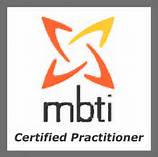
Click Here to see how Myers Briggs Type Indicator Profiles link with how to AVOID Patrick Lencioni’s The 5 Dysfunctions of a Team
Cohesive Teams
By addressing these dysfunctions, what results, is a cohesive team….
“…and imagine how members of truly cohesive teams behave:
- They trust one another.
- They engage in unfiltered conflict around ideas.
- They commit to decisions and plans of action.
- They hold one another accountable for delivering against those plans
- They focus on the achievement of collective results.
£1,450.00 + VAT for a 2 Day Programme – includes Myers Briggs or Emotional Intelligence Profiling FREE OF CHARGE including a “5 Dsyfunctions of a Team Assessment” of YOUR Team… and LOTS of in-house Team Building Activities!
What better time is there than the present to develop your team into a High Performance Team in order to take on the challenges of the current climate? 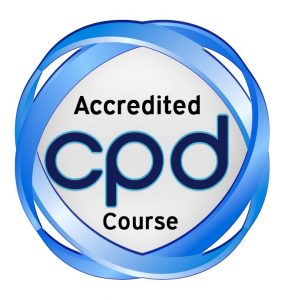
This workshop has been specifically designed:
- To create Team Bonding and Team Working
- To create Team Excellence and Team Spirit
- To inspire and motivate individuals to “Play as a Team”
- To understand the roles that people play in Teams (Belbin) – delegates will participate in a Belbin Profiling to see their preferred role in a Team environment.
- To strengthen relationships within the Team
- To Maximise the Planning Efficiency of the Team
- To learn how to Prioritise Tasks professionally
- To build trust within the Team Members
- To practise the concepts of Transactional Analysis
- To explore “Leadership, Followership….and Conflict!”
- To learn how to create Collaboration out of Conflict within Teams
- To identify “The 7 habits of highly effective teams” (Covey)
- To enhance honesty and respect for each other team members.
- To appreciate and embrace diversity within Teams – covering Conflict Management and Resolution within Teams
- To build professional rapport within the Team
- To explore Effective Communication within the Team (NLP)
- To develop wellbeing and stress resilience through Positive Psychology
- To live Above the Line – with Winning Behaviours and Attitudes
- To create a Team Vision and Objectives (Appreciative Inquiry)
- To SOAR! – identify individual and team Strengths, Opportunities, Aspirations and measurable Results in your Team and Business (Disney Creative Strategy)
- To learn Breakthrough Strategic Thinking Techniques
- To develop an understanding of people types (Myers Briggs) – The 1 day Workshop covers Myers Briggs Types in Group and each delegate will receive a personal MBTI profile report and (subject to team agreement and approval to share their MBTI types) will map the Teams’ profiling types on a group matrix.–
- To participate in state of the art Experiential Activities – make Personal and Team Development FUN!!
- Having been quoted by several politicians over recent years, Hamlet once said…“We are living in extraordinary times, and extraordinary times require extraordinary measures” What “extraordinary measures” will you and our Team be putting together in order to stay ahead of the game ? Utilising the revolutionary Award Winning Mobile Team Challenge Experiential Equipment – the “indoor outward bounds” equipment…. all on YOUR premises. Listen to what the Red Arrows say…“Teamwork…It’s all about TRUST…” Squadron Leader Graham Duffy (Red 4) – Mobile Team Challenge Team Working Excellence Workshop: RAF Cranwell
Creating Team Working Excellence: Workshop Agenda
“The 7 Habits of Highly Effective Teams”
Habit One – “Be Proactive!”
- What is a Team?
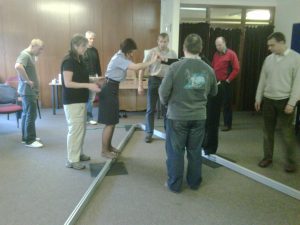
- The 5 Dysfunctions of a Team – Lencioni
- Assessing the functionality of our Team
- Understanding Team Dynamics
- There’s Leadership, Followership and there’s…CONFLICT!
- Experiential Activity: Trust Vee / Trust Me
Habit Two – “Begin with the end in mind”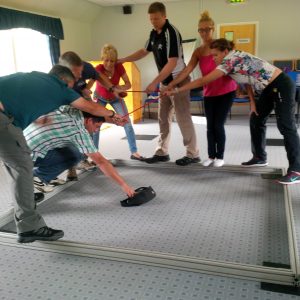
- Creating “buy-in” through Shared Visions using Appreciative Inquiry
- Increasing the level of Accountability in our Team
- Collaborative Working across Teams and Organisations
- Experiential Activity: Doctor Doctor!
Habit Three – “Put First things First”
- Creating optimised efficiency through prioritisation
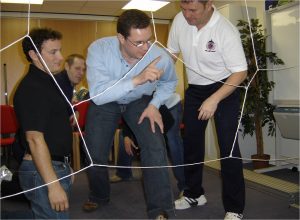
- The “important and urgent” analysis of what we do in our Team
- Where do most successful teams spend their time?
- Experiential Activity: Spiders’ Web
Habit Four – “Think Win-Win”
- Overcoming the Fear of Conflict on our Team
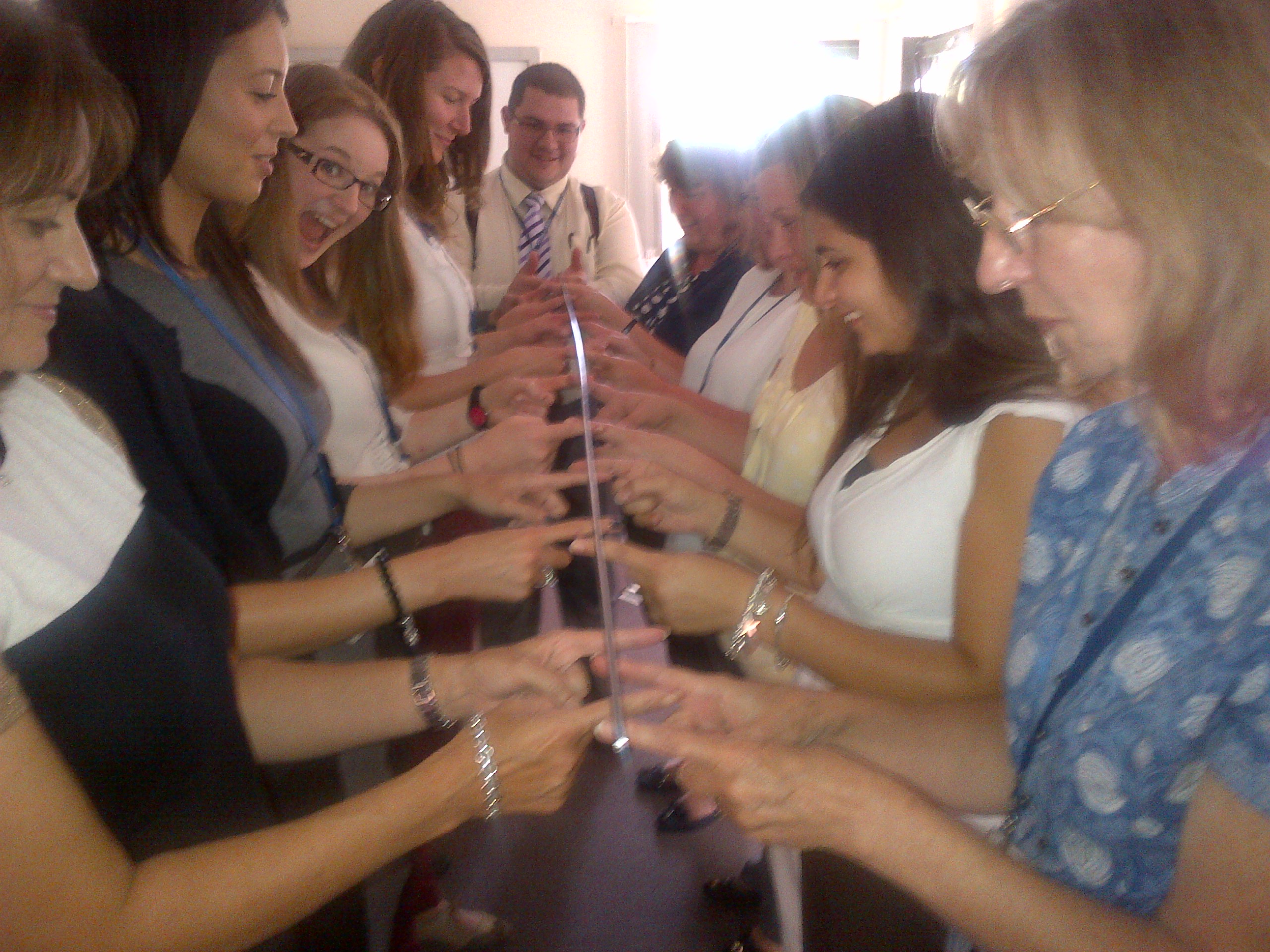
- Embracing Conflict in the Team
- Conflict Resolution and Management within Teams
- Experiential Activity: Levitation Challenge
Winning Behaviours – Training your Mind
Winning Behaviours: Training your Mind
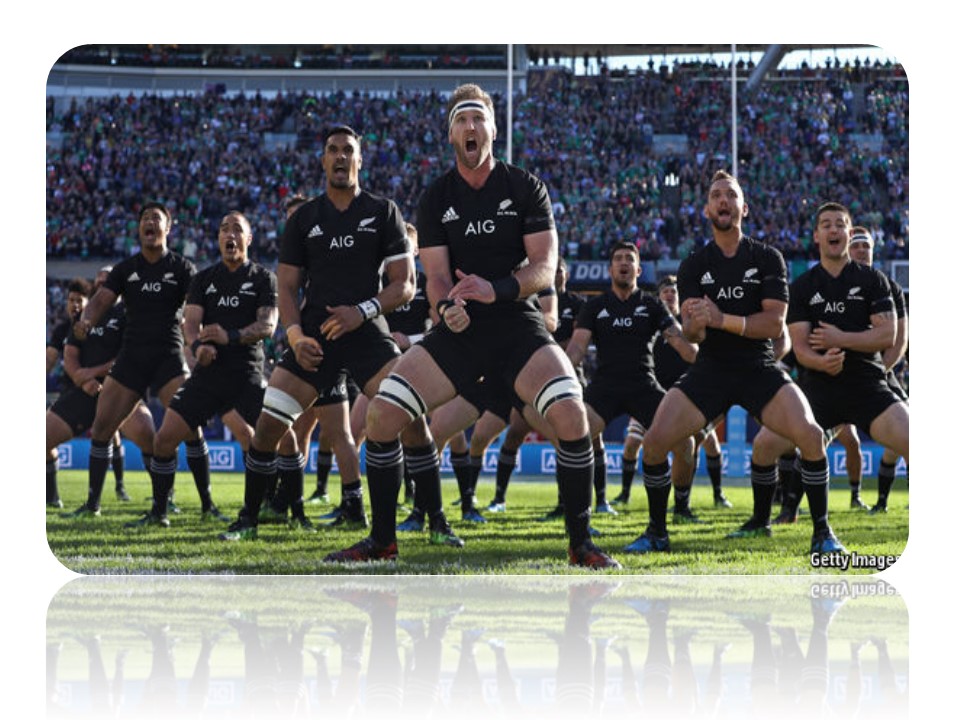 After a great performance, athletes have described a feeling of being “in the zone.” In this state, they feel invincible, as if the game slowed down, the crowd noise fell silent and they achieved an incredible focus on their mission. What is this Superman-like state and how can players enter it when they most need it?
After a great performance, athletes have described a feeling of being “in the zone.” In this state, they feel invincible, as if the game slowed down, the crowd noise fell silent and they achieved an incredible focus on their mission. What is this Superman-like state and how can players enter it when they most need it?
Like the feeling of being moved down a river by the current, this positive groove has been described as a “flow.” In fact, Mihaly Csíkszentmihályi, psychology professor at Claremont Graduate University in California, coined the term in his book, “Flow: The Psychology of Optimal Experience” (Harper & Row, 1990).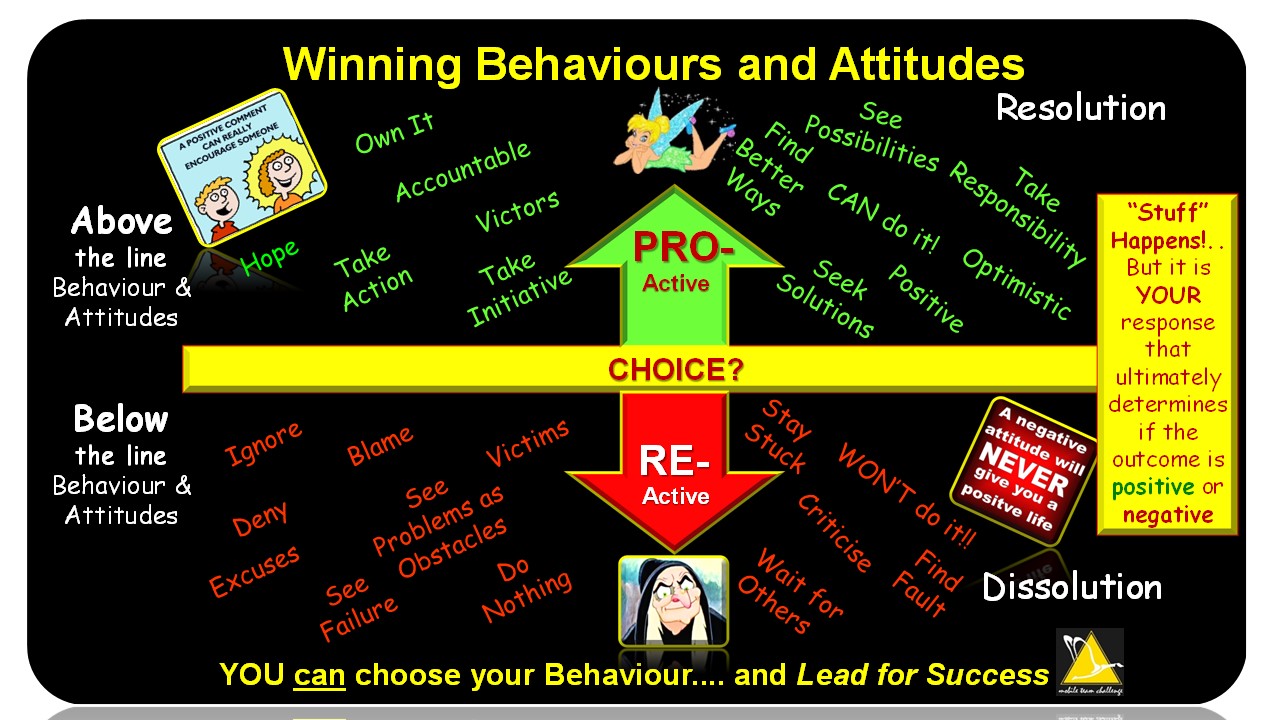
Creating those Winning Behaviours in your Team – by knowing HOW to get your Team into the Peak Performance Zone and how to develop mental strength so as to ensure that they are able to live Above the Line.
Click Here to read an overview of this motivational workshop
MTC Goals Outcome Matrix
“Behaviour-Changing Games delivering Game-Changing Behaviour in Individuals, Teams and Organisations”
Experiential and Accelerated learning techniques have been proven as the most effective tools for memory retention for delegates.
The simple matrix below demonstrates how a Facilitator can prepare a training workshop by identifying the preferred learning outcome for the session and then cross-referring the outcome to identify a choice of MTC experiential activities in order to endorse the learning.
Each learning outcome has several MTC activities designed to bring out the desired learning which means that the same cohort can be ‘reminded’ of the subject through different games and activities.
This results in delegate retention and application of their learning into the workplace and their lives, and the Facilitator adds to their professional credibility and effectiveness.
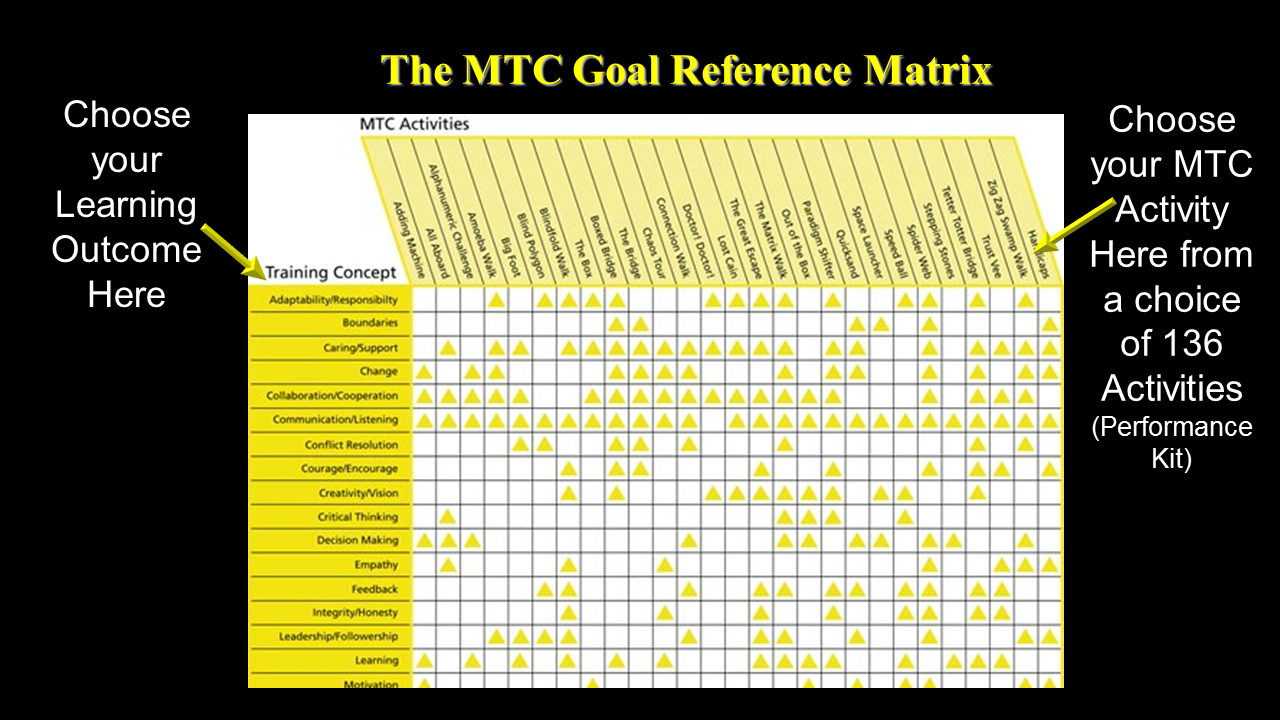
Conflict Resolution – Thomas + Kilmann Types
Cost: £ 895 + VAT per group of 12 delegates
Turning Conflict into Collaboration.
 Understanding Others is one of lifes’ greatest mysteries. There are those people that you can get along with really well…and then… there are those others! Learning HOW to recognise other peoples’ Conflict types and how they interact with your styles is the starting point of this journey into Emotional Intelligence as we increase our SELF Awareness and OTHER Awareness of our Inter and Intra Personal Skills.
Understanding Others is one of lifes’ greatest mysteries. There are those people that you can get along with really well…and then… there are those others! Learning HOW to recognise other peoples’ Conflict types and how they interact with your styles is the starting point of this journey into Emotional Intelligence as we increase our SELF Awareness and OTHER Awareness of our Inter and Intra Personal Skills.
MTC’s conflict resolution workshop utilises the industry’s leading supplier of Conflict and Negotiation Style profiling tools – Thomas and Kilmann. This workshop develops skills and competencies in communication, rapport building, social skills, psychological triggers, unspoken communications and leadership styles required to support working and living BEYOND CONFLICT!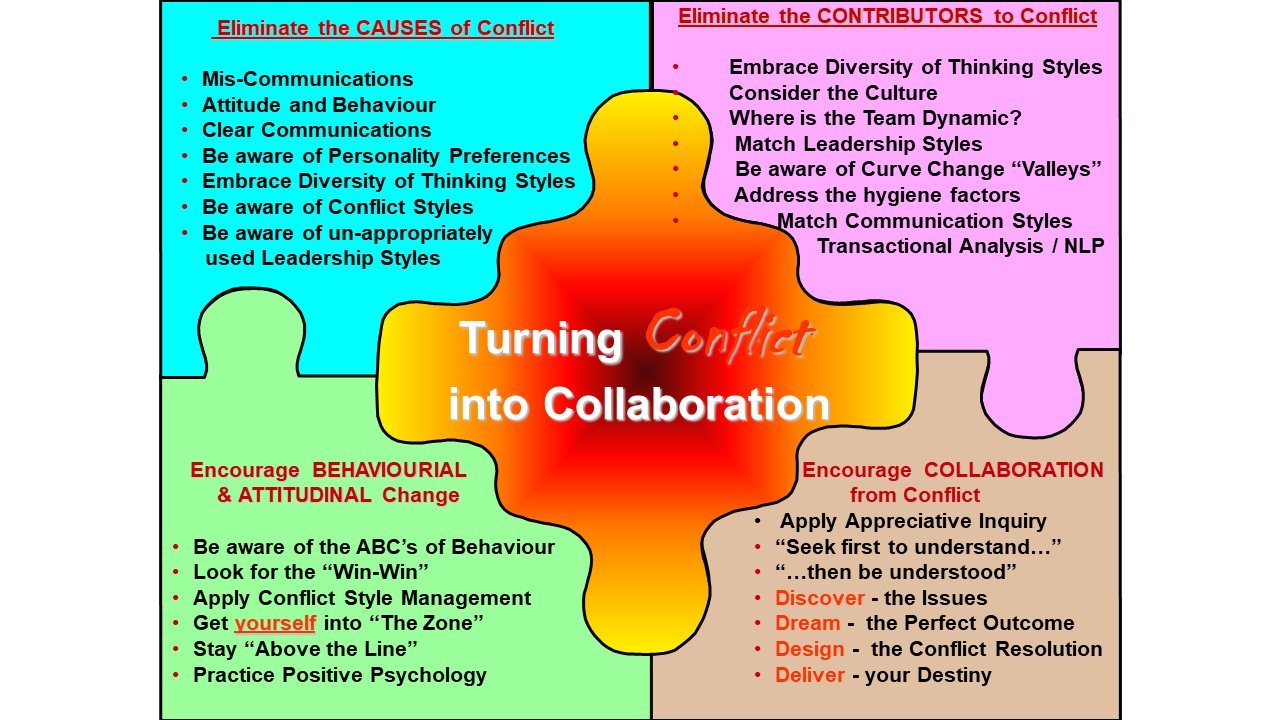
MTC combines Appreciative Inquiry, Neuro-Linguistic Programming, Emotional Intelligence, Experiential Learning, and temperament assessment to support the core competencies associated with the management and resolution of conflict whether at work, in school or at home. Every delegate receives their personal conflict style type using the Thomas + Kilmann psychometric model.
Turning Conflict into Collaboration.
